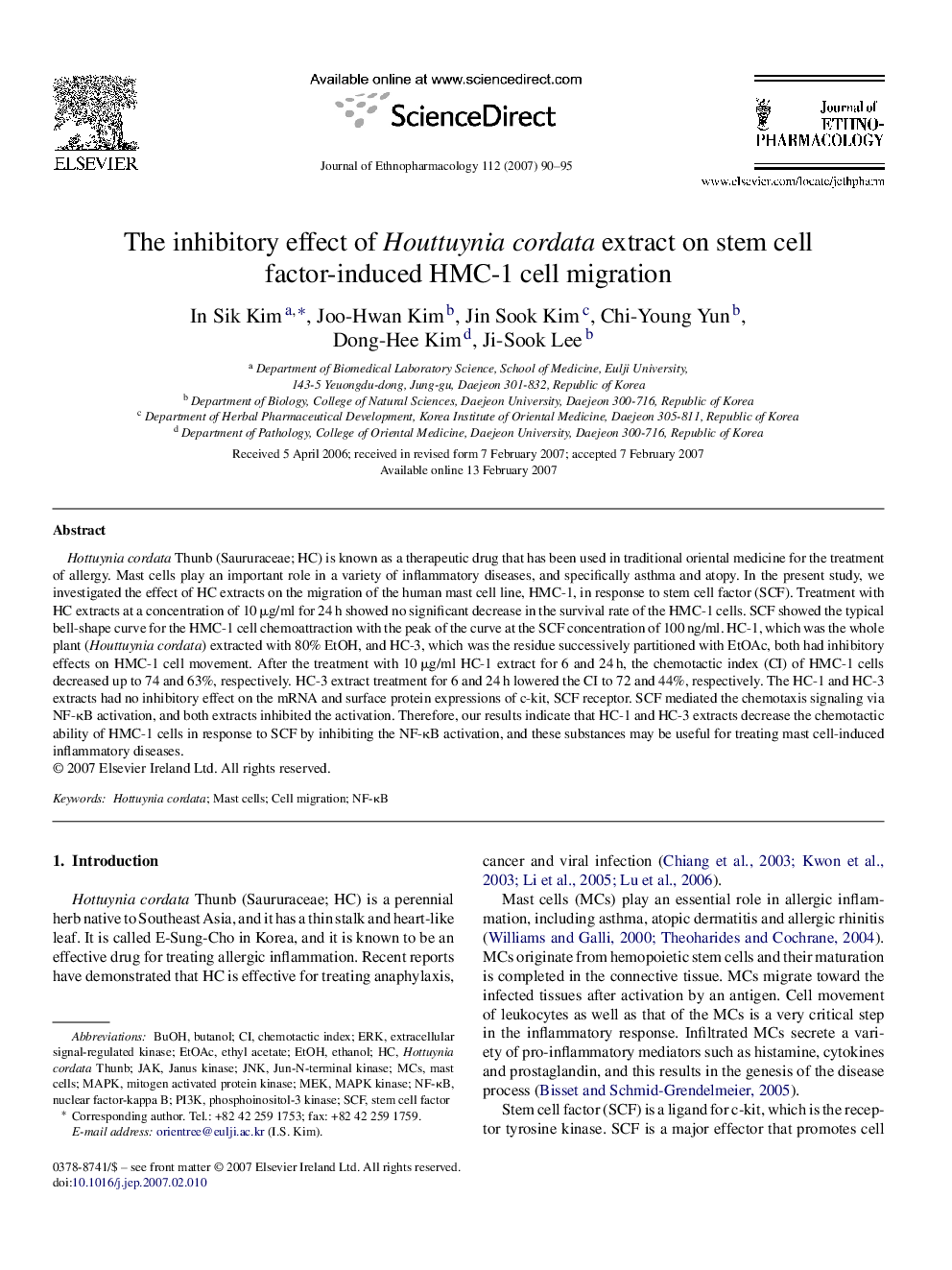| Article ID | Journal | Published Year | Pages | File Type |
|---|---|---|---|---|
| 2546915 | Journal of Ethnopharmacology | 2007 | 6 Pages |
Hottuynia cordata Thunb (Saururaceae; HC) is known as a therapeutic drug that has been used in traditional oriental medicine for the treatment of allergy. Mast cells play an important role in a variety of inflammatory diseases, and specifically asthma and atopy. In the present study, we investigated the effect of HC extracts on the migration of the human mast cell line, HMC-1, in response to stem cell factor (SCF). Treatment with HC extracts at a concentration of 10 μg/ml for 24 h showed no significant decrease in the survival rate of the HMC-1 cells. SCF showed the typical bell-shape curve for the HMC-1 cell chemoattraction with the peak of the curve at the SCF concentration of 100 ng/ml. HC-1, which was the whole plant (Houttuynia cordata) extracted with 80% EtOH, and HC-3, which was the residue successively partitioned with EtOAc, both had inhibitory effects on HMC-1 cell movement. After the treatment with 10 μg/ml HC-1 extract for 6 and 24 h, the chemotactic index (CI) of HMC-1 cells decreased up to 74 and 63%, respectively. HC-3 extract treatment for 6 and 24 h lowered the CI to 72 and 44%, respectively. The HC-1 and HC-3 extracts had no inhibitory effect on the mRNA and surface protein expressions of c-kit, SCF receptor. SCF mediated the chemotaxis signaling via NF-κB activation, and both extracts inhibited the activation. Therefore, our results indicate that HC-1 and HC-3 extracts decrease the chemotactic ability of HMC-1 cells in response to SCF by inhibiting the NF-κB activation, and these substances may be useful for treating mast cell-induced inflammatory diseases.
